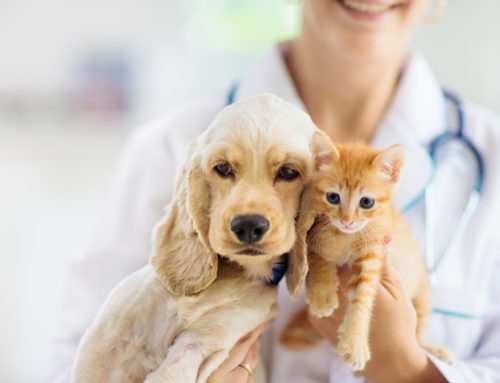Did you know that 1 in 4 dogs will develop cancer in their lifetime? Cancer affects many pets each year, making it a significant concern for pet owners. At Lebanon Animal Hospital, located in Lebanon, Tennessee, we are dedicated to helping you recognize the early signs of cancer in pets, empowering you to act quickly and ensure the best care for your beloved companions. By providing education, early detection tips, and advanced veterinary care, our mission is to support your pet’s well-being every step of the way.
Understanding Cancer in Pets
Cancer in pets, like in humans, occurs when cells grow uncontrollably, creating masses or tumors that can invade surrounding tissues and disrupt normal bodily functions. Cancer can arise in virtually any organ, leading to various symptoms depending on the affected area. Common types of cancer in pets include:
- Lymphoma: Affects the lymphatic system, often causing enlarged lymph nodes, particularly in the neck or behind the knees.
- Mast Cell Tumors: Common in the skin, especially in breeds like Boxers and Pugs, and can range from benign to aggressive.
- Osteosarcoma: A type of bone cancer that usually affects larger dog breeds, causing pain and potential lameness in the affected limb.
- Oral Tumors: These are common in older pets and can affect the gums, tongue, or inside the mouth, leading to difficulty eating, bad breath, or visible growths.
Understanding which cancers are common in pets can help you spot early signs and take preventive steps when possible. Our team at Lebanon Animal Hospital is here to provide guidance and screening to ensure early detection and effective treatment.
Recognizing Symptoms of Cancer in Pets
Early detection begins with recognizing common signs of cancer, as early symptoms can often be subtle or mistaken for other conditions. Keep an eye out for the following:
- Lumps and Swellings: New or growing lumps, as well as changes in existing moles or bumps, can indicate potential issues.
- Unexplained Weight Loss: Significant weight loss without a change in diet is often an early warning sign.
- Loss of Appetite: Persistent refusal to eat or decreased interest in food can signal discomfort or illness.
- Persistent Lameness or Stiffness: Especially in older pets, these symptoms might be mistakenly attributed to aging but can signal bone cancers like osteosarcoma.
- Difficulty Breathing, Urinating, or Defecating: Changes in breathing patterns or bathroom habits can be associated with tumors affecting vital organs.
It’s important to remember that other health issues, such as periodontal disease, abscesses, arthritis, and urinary tract infections (UTIs), can mimic some of these symptoms. Consulting your veterinarian is the best way to determine the cause of these signs.
Breed Predispositions and Risk Factors
Certain breeds have a genetic predisposition to specific cancers, which means that knowing your pet’s breed-related risks can help with early monitoring and preventive care. Here are some examples:
- Golden Retrievers and Boxers are particularly prone to lymphoma, a type of cancer that affects the immune system. Regular check-ups can help monitor for enlarged lymph nodes, one of the earliest signs.
- Bernese Mountain Dogs are at a higher risk of histiocytic sarcoma, a rare but aggressive cancer that can affect the spleen, lungs, and bones.
- Rottweilers and German Shepherds are more susceptible to osteosarcoma, particularly in their legs. Osteosarcoma can cause bone pain, swelling, and lameness, often mistaken for arthritis in senior dogs.
- Persian and Siamese cats may have an increased likelihood of developing mammary tumors, especially if they’re not spayed. Regular check-ups and spaying can reduce this risk.
Environmental factors, including exposure to certain chemicals or secondhand smoke, can also increase cancer risk. Knowing these breed-related and environmental risks can help you stay vigilant and take preventive measures early.
Importance of Regular Veterinary Care
Routine veterinary visits are one of the most effective ways to detect cancer early. At these check-ups, your veterinarian will conduct thorough examinations and may recommend diagnostic tests, such as biopsies, X-rays, ultrasounds, or bloodwork, if any suspicious symptoms or lumps are detected. These tools allow us to identify abnormalities early, when treatment options are often more effective.
For pets with high cancer risk due to breed or family history, more frequent check-ups may be advised. Learn more about when to seek veterinary care and what to expect from our guide on emergency vs. urgent care.
Treatment and Recovery Plans
Cancer treatment in pets may involve several approaches, depending on the type and stage of cancer. Common treatments include:
- Surgery: Often used to remove tumors that are localized and accessible.
- Chemotherapy: Particularly useful for cancers that have spread or for blood cancers like lymphoma.
- Radiation Therapy: Targets specific areas, effective for certain tumor types.
- Immunotherapy: Helps the pet’s immune system recognize and fight cancer cells.
Each pet’s treatment plan is customized based on their unique condition, breed, and overall health. We’ll guide you through each step, offering supportive care to maintain your pet’s quality of life. Regular follow-up appointments are essential to monitor progress and adjust treatments as necessary.
Prevention and Early Detection

While not all cancers can be prevented, there are steps pet owners can take to reduce risks and catch cancer early:
- Maintain a Healthy Diet and Weight: Obesity has been linked to higher cancer risks, so feeding a balanced diet and keeping your pet active can help.
- Limit Exposure to Carcinogens: Avoiding tobacco smoke, certain chemicals, and unnecessary radiation exposure can help minimize risk.
- Regular Vet Visits: Routine check-ups are essential, as veterinarians can spot potential issues early, even before symptoms appear.
Staying vigilant for unusual lumps, sudden behavioral changes, or shifts in eating or bathroom habits can lead to early intervention, which often results in better outcomes. Keeping your pet’s environment as clean and toxin-free as possible, along with regular exercise, can also contribute to their overall well-being.
At Lebanon Animal Hospital, we understand the fear and uncertainty that can come with a cancer diagnosis. Our team is here to provide the knowledge, resources, and compassionate care you need to support your pet’s journey. Early detection and consistent veterinary care are essential tools for managing pet cancer effectively. Schedule regular check-ups and cancer screenings to give your pet the best chance for a long, healthy life.
For additional resources on cancer prevention and care, visit trusted sources like the AVMA or the Veterinary Cancer Society. And remember, the team at Lebanon Animal Hospital is always here to help with expert advice and compassionate care.








Leave A Comment